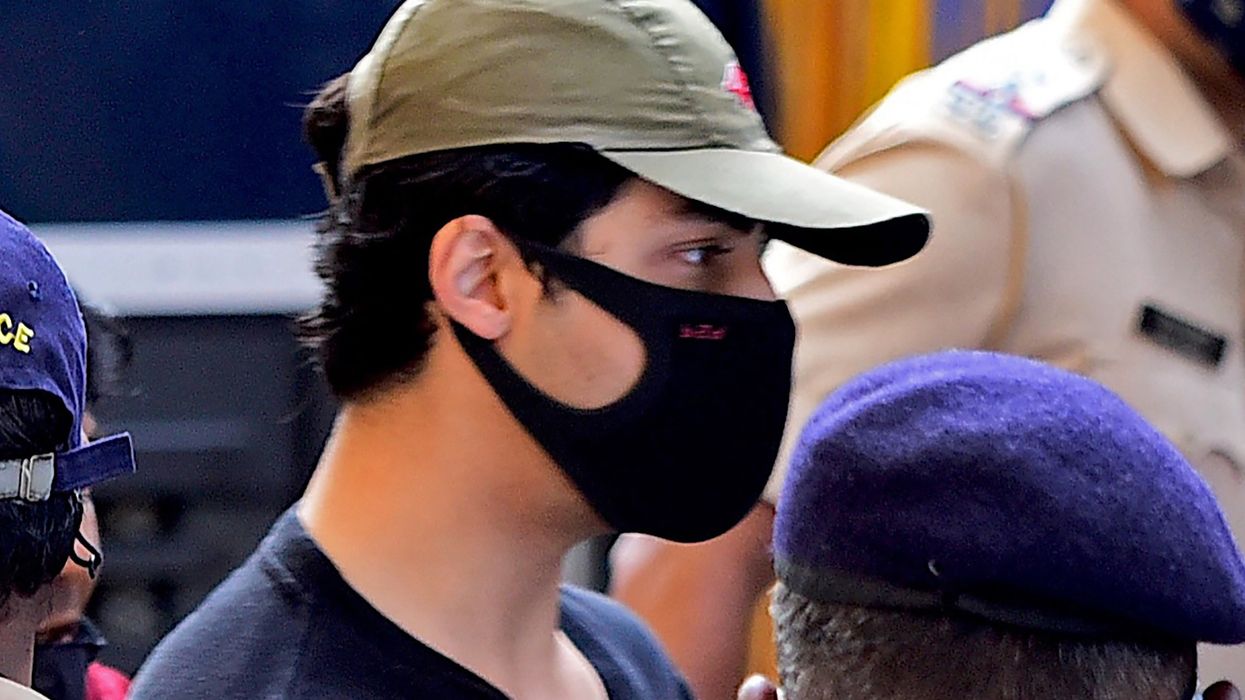Bollywood superstar Shah Rukh Khan’s son, Aryan Khan, was arrested in connection with the seizure of banned drugs onboard a cruise ship off the Mumbai coast. Narcotics Control Bureau on Wednesday opposed his bail plea stating that the probe so far has revealed his role in the conspiracy and illicit procurement and consumption of drugs.
According to PTI, the NCB in its affidavit also stated that Khan was in touch with some persons, who appear to be a part of an international drug network for procurement of drugs. The affidavit said, “During initial investigation, some international linkages pertinent to this applicant (Aryan Khan) have been unearthed which prima facie indicate towards illicit drug procurement. The investigation requires sufficient time so as to approach the foreign agency concerned.”
The affidavit submitted by NCB also states that the case of each of the accused cannot be considered individually or separately, as prima facie investigation reveals that there is a close link/nexus among all the accused, including Khan, for conspiracy to commit offences.
“It is not feasible to dissect or separate each from the other. All ingredients of crime, that are preparation, intention, attempt and commission, are present for this applicant (Aryan Khan),” the affidavit said.
The NCB submitted its affidavit in response to the bail plea filed by Aryan Khan before special judge V V Patil. The judge is currently hearing the bail plea.
On October 3, Khan was arrested following a raid on the Goa-bound cruise ship. He was in NCB’s custody for a few days and was later sent to judicial custody for 14 days. He is lodged at the Arthur Road prison in Mumbai. Last week also a bail plea was filed by Khan which was rejected by a Mumbai court.
NCB in its affidavit said, “It is prima facie revealed that accused No 1 (Aryan Khan) used to procure contraband from accused No 2 (Arbaaz Merchant) and the sources connected to accused No 2, from whose conscious possession six grams of Charas was recovered.”
The anti-drug agency stated that as per investigations carried out so far, accused Aachit Kumar and Shivraj Harijan had supplied Charas (a type of drug) to Aryan Khan and Arbaaz Merchant.
The NCB said, “The role and involvement of this applicant (Aryan Khan) in the commission of grave and serious offences under the NDPS Act, including illicit drug trafficking, is apparent considering the nexus and connection of this applicant with the other accused in the case.”
“The case of each applicant cannot be considered in isolation. All these persons are an integral part of a common thread which cannot be separated or dissected from one another. In such a situation, the quantum of recovery (of drugs) from one accused becomes inconsequential,” the anti-drug agency said in the affidavit.
“Even though from some of the accused there is no recovery or less recovery of contraband, the participation by acts of such persons, who have acted in concert, conspiracy forms the basis of the investigation,” it said.
It said the allegations that the accused have been falsely implicated are untrue and misleading, as there is sufficient material in the form of WhatsApp chats and photographs which show the ingredients of conspiracy.
The affidavit said, “Considering the influence that Aryan Khan holds in the society, it is very much possible that he may tamper with evidence and influence other witnesses whom he personally knows.”
Apart from Khan, the court is also hearing the bail pleas filed by Arbaaz Merchant, Munmun Dhamecha, Nupur Satija, Aachit Kumar, Mohak Jaiswal, Shreyas Iyer, and Avin Sahu.













